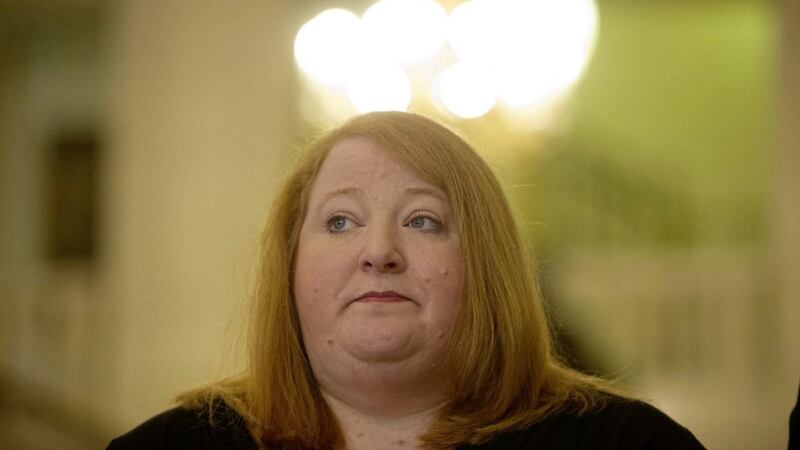I noted in last week's column that I'd be very surprised if Sinn Féin and the DUP didn't emerge from the council elections comfortably ahead of the others; and that both the SDLP and UUP would take hits.
Well, that's more or less what happened.
What I didn't predict was that Alliance would do so well; or that the Greens and People Before Profit would do particularly well in Belfast (where the UUP took a hammering).
Will all of this have any impact on the new talks process? Probably not.
The real problems remain between the DUP and Sinn Féin and it's going to take a miracle (and I say that as an atheist) to resolve their differences.
Naomi Long certainly has the wind at her back and isn't going to allow her party to sit in the shadows while the 'big two' do what they usual do - ignore everybody else.
But she knows, as do they, that 21 more seats (bringing Alliance to 53 - or 11.5 per cent - out of 462) cuts no ice with parties that have almost 50 per cent (227) of the seats between them.
What could make a difference would be the loss of the second unionist seat in the Euro elections on May 23.
There's a big, big dilemma for Remain/soft-Brexit unionists: do they vote for Naomi Long or do they opt for the UUP's Danny Kennedy?
The line from the DUP's Diane Dodds is: "The people who want the 2016 referendum result respected must use this election to 'tell them again'.
"The United Kingdom does not need a second referendum or a people's vote.
"We need the will of the people implemented as expressed in 2016.
"I will be asking people to vote DUP and then vote for other unionists who want to see the referendum result implemented."
In other words, the other three unionist candidates: UUP, TUV and Ukip.
While Kennedy admits that he voted Remain in 2016, the UUP position is that the will of the people be implemented.
Since all four unionist candidates are backing implementation of the 2016 result there is, in fact, no unionist choice for those unionists who voted Remain and still support Remain.
If those voters gravitate to Long - I can't see them going to the SDLP, Sinn Féin or other pro-Remain candidates - then there is a chance that she takes the third seat.
That would be enormously embarrassing for unionism generally and the UUP in particular.
There is also the possibility that if Jim Allister polls well enough he could take the second seat; and again, that would be hugely embarrassing for the UUP.
So it looks likely that rather than be a Remain/Leave battle within unionism it will be about the importance of keeping the second seat.
With Sinn Féin focused on building the evidence in favour of a border poll (unionism a minority of the 462 councillors elected last week; unionism a minority in the Assembly, etc) the loss of the second unionist MEP would be cited as further evidence that the non-unionist majority required to meet the conditions for a poll - namely that victory for Irish unity is 'likely' - is closer to being met.
Which means that pro-Remain unionists will be encouraged to put staying in the UK above staying in the EU.
What will be tested on May 23 is whether pro-Remain unionists will buy into that logic.
The 'surge' in support for Alliance suggests that growing numbers of soft unionists are prepared to vote for them.
How much did Brexit play in that decision? How much has it to do with a section of unionism being uncomfortable with the perceived unionist hostility to issues like same-sex-marriage?
How many unionists fear that the sort of Brexit the DUP and Jim Allister seem to want is a bigger threat to the constitutional integrity of the UK than the alternatives?
How many still think that Brexit will even happen? How many just took the decision to vote Alliance because it was a 'local' election and they didn't think much harm would be done by 'sending a message'?
Because no-one predicted the Alliance surge (even Alliance was taken by surprise) it seems fair to conclude that Naomi Long - the party's key electoral asset - could do even better as a vote-catcher.
It seems similarly fair to conclude that unionists will back away from trying to portray Alliance and Long as 'enemies of the Union'.
That tactic didn't work last Thursday. It's hardly likely to work three weeks later. They'll have to find some other way of stopping the drift of votes to her - and they don't have much time.
Anyway, a return of two non-unionist seats would, I think, have an impact on the talks process.
It might make party-political unionism realise, finally, that when there is a state of flux everything changes; including the old certainties.








